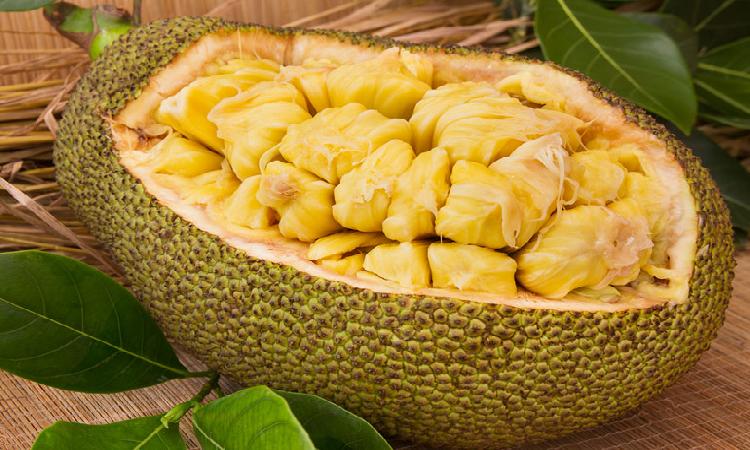

Jackfruit, scientifically known as Artocarpus heterophyllus, is a tropical fruit native to southwest India. It is renowned for its distinctive flavor, versatility, and numerous health benefits. Often referred to as the "jack of all fruits," it is gaining popularity worldwide as both a culinary ingredient and a health food. Let's delve into the various benefits of incorporating jackfruit into your diet.
Nutritional Profile
Jackfruit is a nutrient-dense fruit rich in vitamins, minerals, and fiber. A 100-gram serving of jackfruit typically contains:
Health Benefits
Jackfruit is packed with antioxidants like vitamin C, flavonoids, and phytonutrients, which help neutralize free radicals in the body, reducing the risk of chronic diseases such as cancer and heart disease.
The high fiber content in jackfruit aids digestion, prevents constipation, and promotes regular bowel movements. It also contains a soluble dietary fiber called pectin, which helps regulate blood sugar levels and cholesterol levels.
With its high vitamin C content, jackfruit strengthens the immune system, helping the body fight off infections and illnesses. It also contains other nutrients like vitamin A, vitamin E, and zinc, which contribute to overall immune health.
Potassium, a vital mineral found in jackfruit, helps regulate blood pressure levels, reducing the risk of hypertension and stroke. Additionally, the fruit's fiber content helps lower cholesterol levels, further protecting against heart disease.
Jackfruit is low in calories and fat while being high in fiber, making it a filling and satisfying snack. The fiber content keeps you feeling full for longer, curbing cravings and aiding in weight loss or weight management efforts.
Jackfruit contains essential minerals like magnesium, calcium, and phosphorus, which are crucial for maintaining strong and healthy bones. These minerals help prevent bone-related disorders like osteoporosis and arthritis.
Despite its sweet taste, jackfruit has a low glycemic index, meaning it doesn't cause a rapid spike in blood sugar levels. Its fiber content slows down the absorption of sugar, making it suitable for individuals with diabetes or those at risk of developing the condition.
Jackfruit is a good source of vitamin A, which is essential for maintaining healthy eyesight. Adequate intake of vitamin A can prevent age-related macular degeneration and night blindness.
Certain compounds in jackfruit exhibit anti-inflammatory properties, which can help alleviate symptoms of inflammatory conditions such as arthritis, asthma, and inflammatory bowel disease.
The combination of antioxidants and vitamin C in jackfruit helps promote collagen production, which is essential for maintaining firm, youthful skin. Regular consumption of jackfruit may help reduce wrinkles, fine lines, and other signs of aging.
Culinary Versatility
Apart from its health benefits, jackfruit is prized for its versatility in the kitchen. It can be enjoyed in various forms:
The sweet, yellow flesh of ripe jackfruit can be eaten fresh as a snack or dessert. It has a flavor reminiscent of pineapple, mango, and banana.
Green or unripe jackfruit is often used as a meat substitute in vegetarian and vegan dishes due to its meaty texture. It can be cooked and seasoned to resemble pulled pork or shredded chicken.
Jackfruit seeds are edible and can be boiled, roasted, or mashed. They have a nutty flavor and are rich in protein, making them a nutritious addition to soups, curries, and stir-fries.
Ground jackfruit seeds can be processed into flour, which is gluten-free and rich in fiber. It can be used in baking or as a thickening agent in sauces and gravies.
Precautions
While jackfruit offers numerous health benefits, some individuals may experience allergic reactions to it, especially those allergic to birch pollen or latex. Additionally, individuals with diabetes should monitor their portion sizes and overall carbohydrate intake when consuming ripe jackfruit due to its natural sugars.
In conclusion, jackfruit is a nutritious and delicious fruit that offers a wide array of health benefits. Whether enjoyed fresh, cooked, or as a meat alternative, incorporating jackfruit into your diet can contribute to overall health and well-being. As with any food, moderation is key, and it's essential to consult with a healthcare professional if you have any concerns or dietary restrictions.